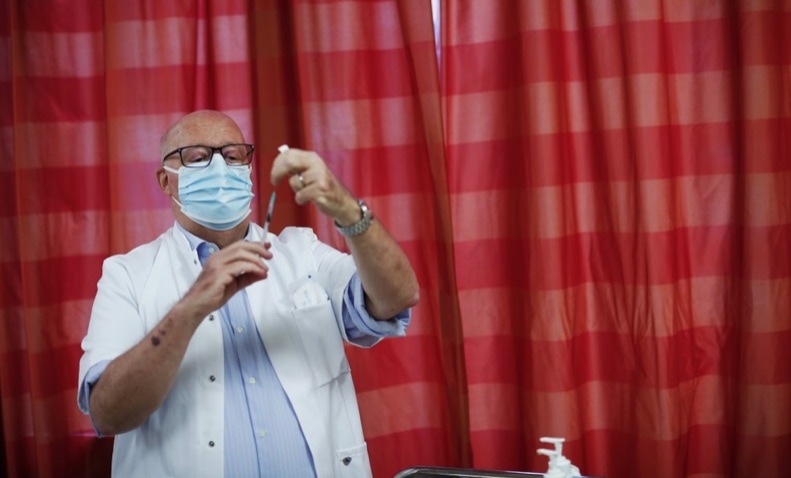
A huge study of another COVID-19 vaccine candidate is getting underway Monday as states in the U.S. continue to roll out scarce supplies of the nation’s first shot options.
The U.S. has authorized emergency use of two vaccines, one made by Pfizer and BioNTech and the other by Moderna, but doses will be rationed for months.
The candidate made by Novavax Inc. is the fifth to reach final-stage testing in the U.S. Some 30,000 volunteers are needed to prove if this vaccine — a different kind than its Pfizer and Moderna competitors — really works and is safe.
“If you want to have enough vaccine to vaccinate all the people in the U.S. who you’d like to vaccinate – up to 85% or more of the population – you’re going to need more than two companies,” Dr. Anthony Fauci, the top U.S. infectious disease expert, told The Associated Press.
The study, which is funded by the U.S. government, is open to all adults but will focus on high-risk older adults and volunteers from Black and Hispanic communities who have been hard-hit by the virus. Two-thirds of volunteers will receive the vaccine and the rest will get dummy shots.
The Novavax candidate uses lab-grown harmless copies of the spike protein that coats the coronavirus to train the body to recognize if the real virus comes along. The Pfizer and Moderna vaccines instead use a newer technology, injecting the genetic code for that protein.
In the U.S., Johnson & Johnson and AstraZeneca also have vaccine candidates in late-stage U.S. testing.
The head of drugmaker AstraZeneca, which is developing a coronavirus vaccine widely expected to be approved by U.K. authorities this week, said Sunday that researchers believe the shot will be effective against a new variant of the virus driving a rapid surge in infections in Britain.
Also, AstraZeneca chief executive Pascal Soriot also told the Sunday Times that researchers developing its vaccine have figured out a “winning formula” making the jab as effective as rival candidates.
Some have raised concern that the AstraZeneca vaccine, which is being developed with Oxford University, may not be as good as the one made by Pfizer already being distributed in the U.K. and other countries. Partial results suggest that the AstraZeneca shot is about 70% effective for preventing illness from coronavirus infection, compared to the 95% efficacy reported by Pfizer and its German partner BioNTech.



